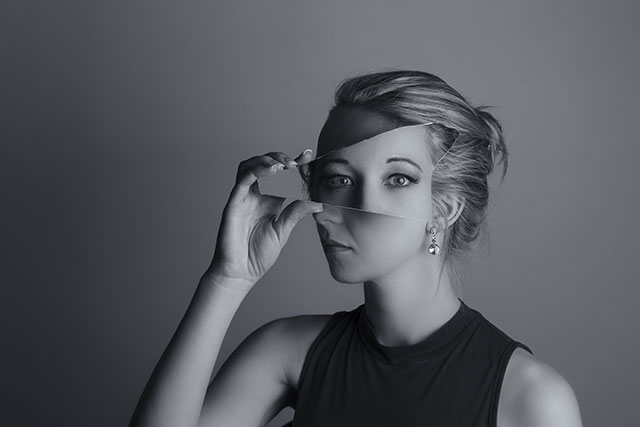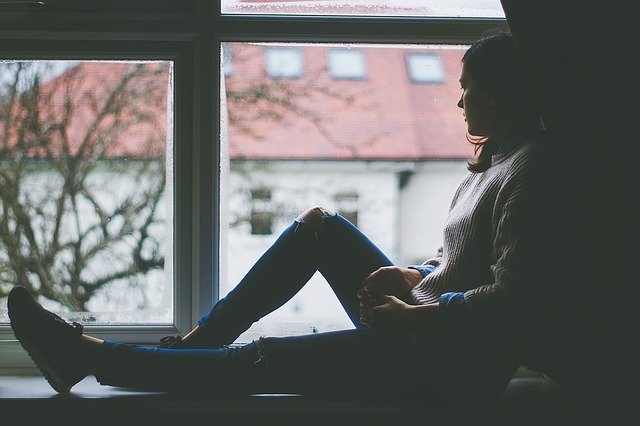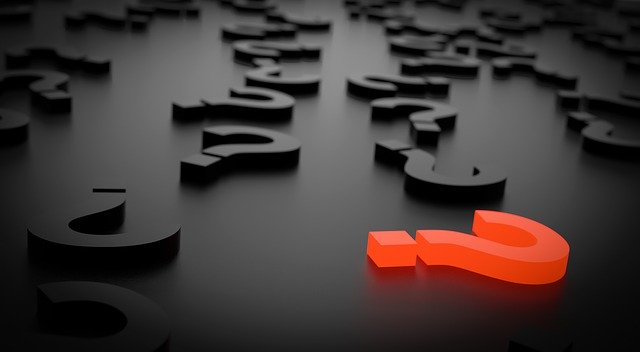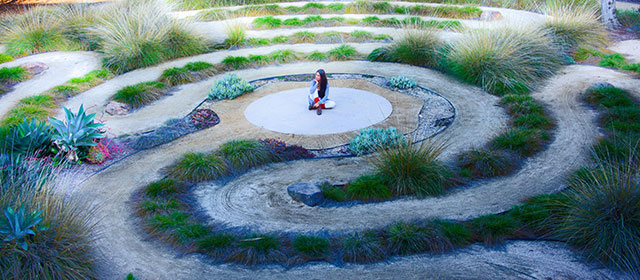
Does depression change your personality?
Making it through depression and personality change.
One day, after battling depression for nearly a decade and finally being reasonably stable, I looked in the mirror and what I saw shocked me. The personality change was shocking. The person staring back at me looked like a stranger. In fact, I did not recognize her as myself. Physically, I looked different. I was skinnier than before. My eyes had dark circles underneath them, which reminded me a bit of a raccoon.
Once nice and long, my fingernails had suffered as well. They were now short and jagged, like sharp mountain ridges. A sad and wistful look haunted my eyes. Greasy strands of hair hung like an old shower curtain around my face.
But, the physical differences were not what shocked me so much. After all, I had seen these changes for many years now and learned to live with them. What shocked me most was the realization that this person was not me. Everything I had been through seemed detached, like I experienced it in an alternate reality.
The stranger in the mirror
I questioned how I could simply move on with my life after what I had been through. The more I spoke to other people about how they felt after their depression, the more I realized that depression changes you. And it’s extremely difficult to describe exactly how this change comes about. It is even more difficult to describe how I felt different.
Was I more anxious? Did my perception of the world change? Had my food preferences changed? Was my favorite color still green? How did I feel about eating asparagus? Did I still want to travel the world? What scared me so much is that I did not know the answer to any of those questions. Somewhere in the depression battle I had lost myself and I did not have the slightest clue what to do with that.
Before getting depressed, I knew who I was. I had dreams and aspirations. The year of my graduation I wrote in the yearbook that I wanted to become a mad scientist and live in a castle. It was pretty straight forward. Go to university, work for a large international company, buy a castle, and live happily ever after. I wanted to drive a lime green Eclipse, like in the Fast and the Furious. The world was my oyster and I wanted to explore every corner of it. The day I looked in the mirror, I realized that none of that had come to pass. Truthfully, I did not know if I even still wanted any of those things.

Who am I?
Realizing that I had completely lost touch with myself sent me into a panic attack. I was extremely scared that I would float around aimlessly for the rest of my life without knowing who I am. A part of me felt that I didn’t deserve any of the things I had dreamed of because I had not stepped up and accomplished anything.
So, I felt that I had finally got a handle on my depression and then everything looked like it would fall apart again despite that. I had to concede that depression changed me. But, did that mean that I could never be my old self again? The answer dawned on me many years and many therapy hours later.
Nobody can ever be their old self again because time passes, we change, and we can never “un-experience” what we go through in life.
We evolve through what we experience and we begin to see things differently. It would be absurd to expect to be the same at 40 as we were at 13.
“I wasn’t searching for something or someone….I was searching for me.”
- Carrie Bradshaw
Once I removed my depression from the equation and understood that change was a natural part of progressing through life, I did feel a lot better. But, there was still the question of not knowing who I was. And that is also a normal part of getting older and depression is not necessarily part of that for everyone. I know many people who have lost touch with themselves without being depressed. It happens. And it can cause panic, sadness, and a midlife crisis. The fact of losing ourselves can also facilitate depression later on in life.

Personality change during depression
Looking back, my personality drastically changed while I battled depression. Without doubt, the changes were very noticeable for my family and friends. And again, this is unfortunately part of being depressed. When we talk about the symptoms of depression, changes in mood, behavior, and personality are right up at the top.
I was quite a social person growing up and loved being around people. In primary school, I was part of the school’s drama club and acted in some plays. Later on, we even got to make a movie at the Bavaria Film Studios in Munich as part of a student summer initiative. Whenever there was something going on, you could be sure I was part of it.
With the depression all that changed.
It was nothing that changed overnight. It was a gradual change that really is most noticeable looking back on it. For years during high school, I still functioned and finished school; however, inside me, things had started to change a long time ago. I found hanging out with friends much more difficult as time went on.
From social to withdrawn
Talking and explaining became a tedious chore. It was much simpler to stay at home, play on my computer, watch TV, and not have to talk to anyone. Everyone expected me to hang out and party, but I craved being alone more than the company of my friends. My phone used to ring off the hook and I was always out. Over time, I stopped responding to my pager and later my cell phone and made excuses on why I couldn’t make it out.

I also noticed that my normally happy mood changed to being sad all the time. Most days it felt like I had woken up with a dark cloud over my head. Nothing in particular happened to make me feel sad most days. I just had a general sense of the fact that there was no future waiting for me. It literally felt like I was staring into a black hole all day long.
Sometimes I cried. And later, I cried most days. Again, this happened gradually and I didn’t just go from happy to sad in one day. But my life changed from more good days than bad to just bad days. Because it happened so slowly, I felt like this was just the new normal. Looking back at it, the fact that I was sad all the time did not even raise any alarm bells in my head at the time.
Personality change as the new normal
Of course, my family and friends noticed. But for me, this gradual change became the new way of experiencing life and looking at my future. My own thoughts trapped me inside my head and at some point I could not even remember what being happy felt like.
Yes, from my perspective today it is extremely scary. And that is one of the scary parts of depression - often times the depression just becomes our new way of living and we accept that life will always be like that going forward. Happy times are a distant memory and often we cannot even remember what “happy” truly felt like.

Another part that makes things even harder is the fact that our innate curiosity tends to change to numbness and indifference during depression. As you can probably tell, I am a person who is very curious. It is in my nature to ask questions, to understand how things work, and to continually educate and further myself. I am curious and I love discovering new things.
Depression swallowed that part of me entirely. All that was left was a deep fear of the unknown, almost like a panic of going on. And my curious nature went to just not caring. Everything was overwhelming. I had no answers and trying to change anything was way too much effort. I could not see past the next few minutes or even the end of the day.
Emotionally dead
Instead of experiencing a whole range of emotions, I was stuck fluctuating between outright panic mode and feeling nothing. When I wasn’t suffering from anxiety attacks, I just didn’t feel anything. I felt nothing to the point where I self-harmed because I just wanted to feel something.

And even that did not scare me or make me feel anything. During the times where I was a little more clear-headed, I did wonder if I would be like this forever now. If my “old self” was gone for good and I would be this shell of a person for the rest of my life. But during my depression, I honestly didn’t wonder about it too much.
I also slept a lot. And by a lot that could mean 20 hours or more a day. Most days I didn’t even bother getting out of bed. My active personality changed to that of a complete hermit. When I did make it out of bed, I haunted the house with disheveled hair, dirty pjs, and smelly breath because I just couldn’t get myself to brush my teeth.
The thought of lifting the toothbrush caused panic waves and I only relaxed a little when I was back in bed with the covers pulled over my head. The brain fog was so severe some days that I lost track of what day it was. Sometimes I did not know whether it was morning or night. Since I was unable to work or go to school, the days just melted together into one big “nothing”. I lost track of when I last ate, last showered, or last spoke to someone.
Spinning out
All my life, my parents brought me up to make my own decisions and go after my dreams. By the time high school came around I was very proficient at making decisions and I even tried my hand at owning my own website design business. I never believed the fact that as a woman I could not have a career and my parents always supported me in that.

When my depression hit, I completely lost my ability to make decisions and pursue my dreams. Most days panic, fear, and numbness froze me in place. Even deciding on which pair of socks to put on was a battle. I know it is extremely hard to understand this when you have possibly never been depressed.
Even looking back at it now, some of the things that happened are so incomprehensible to me. I ask myself how I could let that happen. How could I just have given up on my dreams so easily? But then I gently remind myself that this is what depression does best - it swallows you. It turns you into an emotionless shell of your old self. It debilitates you. And it sucks the life and the colors right out of you.

Personality change after depression
So, where is the bright side, you might ask now. Because depression is dark and scary. And we want to know that there is a happy ending to this. Most people who are suffering from depression do worry about getting back to their “old self” and they want to know that it will happen one day. Just like me, we want to know that the depression will end one day and we can have our lives back. We want to know that our personality change is not permanent.
To explain this in a little more detail, let’s talk about what happened when I started breaking through my depression. I have to admit that the first year was bumpy. My personality remained different than before and I still did not really recognize myself. Part of my fear was that my “old self” still had not returned. Even though I felt like my depression was getting better, I still spent a lot of time being confused.

Losing sight of the path
Before, I felt like I knew what I wanted out of my life and I knew which direction to go. Days where I was extremely confused often sprinkled the period of breaking through my depression. My future confused me. The fact that I often could not even see a future was very scary. In addition, my next steps confused me, as did my plan for healing, and my goal of breaking through my depression.
Clarity had gone out the window and I felt a bit like a blind person stumbling through a vast forest. I tripped over roots and branches struck me in the face. During this time, I also experienced a complete lack of confidence in my abilities. Every job ad I looked at caused panic of not being good enough. I didn’t even trust myself with a simple office job.
I just could not trust myself
And worse, I didn’t trust my abilities at home either. Washing clothes, making dinner, cleaning up after myself were all things that seemed so overwhelming. Folding my sweater wrong could be the next disaster and making a meal that tasted bad had the potential of setting me back months. This complete breakdown in confidence and my fear of the unknown were personality traits I was unfamiliar with. I just hoped every day that things would get better.
While working through my depression, I was also unsure of my emotions. Sometimes I felt sad and I would immediately question why. When I felt happy, I would analyze if it was “real” and how it compared to my happiness “before” depression. I had gone through so much trauma that none of my emotions seemed real. Learning to trust myself again and not to fear my emotions took a long time.
Confusing emotions
Before experiencing depression, I just took my emotions for granted. Happy meant happy, sad meant sad, and angry meant angry. After decades of depression I realized that complexity defines emotions. My emotions had changed my life and because of the negative experiences, I almost felt like I had to keep them in a box, so they couldn’t do any more damage.
The time of transition out of depression was one of the hardest to go through. I was clear enough in my head to understand that I now had a future, but also clear enough to realize that my old self was not coming back. How could it? I had been through so much that I could never be the same person again.


How did I get through the personality change?
One step at a time
I am happy to say that time really did help me heal. While desperately waiting for my personality to change back to pre-depression times, I realized that this was actually not what I wanted. And you might make the same discovery as you work through your depression. You might find that depression changed you and you have outgrown the person you were before. There is absolutely nothing wrong with that. In fact, for me it was part of my healing journey.
I started with the things I impulsively liked. For example, when I heard a song on the radio, I would look into that artist. When I saw something on a restaurant menu that sounded good, I would just try it. Since I was not sure what I liked anymore, it was a time of discovery and learning about myself. My intuition was my best and most steady guide. I did not force myself to like and do the things I had previously enjoyed. I gave myself lots of room to grow into the “new” me.

A new career path
Over time, I found things I enjoyed work-wise as well. I did my bookkeeper certification and then went back to owning my own business. Little by little, the road opened up in front of me and I just took it one day at a time. I think instead of being afraid of what depression took away from me, I realized that I was just growing up. My experiences may have shaped a little differently than expected, but I was still me at the core.
There was no more waiting for my old self to come back. It was not necessary and it would have held me back from healing. The “old me” simply did not have the understanding the “new me” had. Once I understood that, my confidence started coming back as well. Because I was charting a new path instead of trying to fix something old, all the doors were wide open and I could really find out what I wanted and who I was. I put a lot of thought into what actually made me happy and how I could achieve that.

The Takeaway
So, does depression change your personality? I think without doubt it does while you are battling depression. There are plenty of scientific studies available that have looked at personality changes during depression. It affects your mood and behavior, as well as your physical body. Every depressed person I have spoken to has experienced these personality changes with varying degrees of severity.
You are experiencing a mental illness, so you would expect there to be some changes and those changes will affect how you act. The fact that depression impacts your personality is not surprising, which does not make it any less real or difficult to deal with.
But, does depression permanently change who you are? Does it kill off your “old self” and you have to live in personality limbo forever?
I don’t think so. What I experienced does not match with that. Having said that, everyone is different and will experience depression differently. For me, there was a pronounced change in personality while I was depressed. Then, there was a long period of confusion and self-doubt, as I was breaking through depression. A very long period of finding myself again and finally feeling comfortable in my own skin followed.

Grow yourself
Looking back, I believe I would have changed regardless of being depressed. We grow up. All the things we experience affect us. It would be silly to expect that I would be the exact same person at 35 than I was at 13.
Depression took me to a very dark place.
But, depression also made me understand myself and my emotions better. I can now understand others with depression empathize with their experiences. My perspective of the world has definitely changed. Things that seemed so important before have now shifted and don’t matter so much any more.
But that’s not to say that the person who battled depression is now the wrong version of myself. It just took some time to get comfortable with a big shift in emotions and character. It also took some time to find happiness again and chart my path.

So, it is important to understand that the person coming out of depression will be different. With time, you will learn about this “expanded” version of yourself. Give yourself lots of time and space to unfold.
You will find your path and you deserve all the great things coming your way!
Sources
